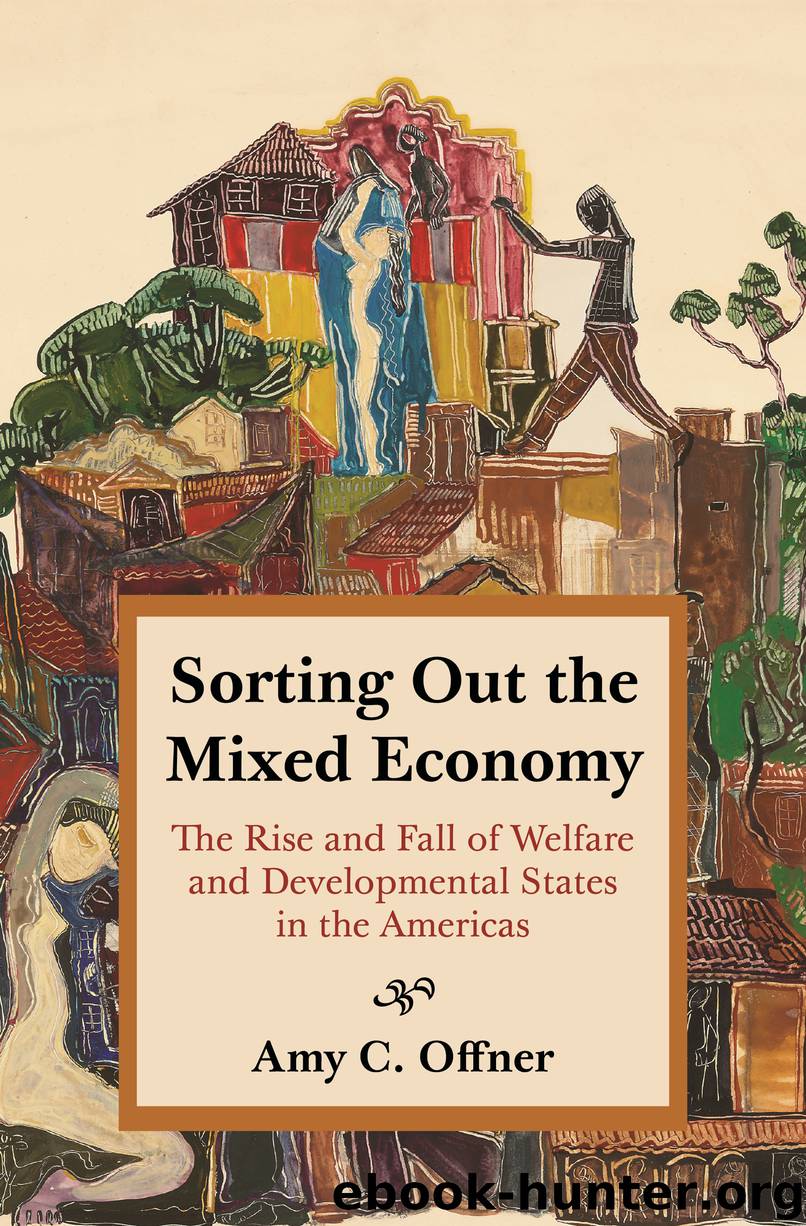Sorting Out the Mixed Economy by Amy C. Offner;

Author:Amy C. Offner;
Language: eng
Format: epub
Publisher: Princeton University Press
Published: 2019-07-17T16:00:00+00:00
FIGURES 6.5 AND 6.6. In 1970, Thomas J. Houde, an art teacher and union activist in the New Haven public schools, assailed performance contracting in cartoons published by the American Federation of Teachers. (Courtesy Danielle Slouf)
In 1971, David Lilienthal signed the statement. The report’s examples of for-profit educational contracts embodied the concepts of “social entrepreneurship” and “business statesmanship” that he had brought to the committee. Moreover, they gave his once-idealistic calls and curious references to the Third World a new vividness and a sense of imminent, local reality. The old New Dealer had come a long way by walking a continuous path. And he and his fellow signatories—executives from fourteen manufacturing, energy, retail, and financial corporations—had found something to like in the War on Poverty that others had missed.
Given the conflicts it provoked at the time, it is curious that businessmen’s mobilization became recorded mainly in business publications, leaving hardly an imprint on the general public image of the Great Society. One reason, of course, was that in the moment and in retrospect, the phenomenon of for-profit contracting seemed a small piece of a much larger program. Capitalists constituted one distinctive group among many that met inside the state, and their immersion in a wider social project was inevitable to the extent that they aimed to reproduce within the welfare state class relations that prevailed beyond it—the very class relations that the welfare state was designed to modify and stabilize. In fact, businessmen distinguished themselves even among veterans of foreign and imperial affairs, many of whom labored elsewhere in the War on Poverty and saw quite different promises in it. During the years when Lilienthal turned homeward, so did a great many veterans of postwar development programs whose motives, experiences, and final destination differed from his. While corporate executives flocked to US public schools, a generation of self-help housing veterans set their sights on farm labor camps and public housing projects. Moving into US cities and rural communities, they promised to give shelter to North Americans.
Download
This site does not store any files on its server. We only index and link to content provided by other sites. Please contact the content providers to delete copyright contents if any and email us, we'll remove relevant links or contents immediately.
| Arms Control | Diplomacy |
| Security | Trades & Tariffs |
| Treaties | African |
| Asian | Australian & Oceanian |
| Canadian | Caribbean & Latin American |
| European | Middle Eastern |
| Russian & Former Soviet Union |
The Secret History by Donna Tartt(18134)
The Social Justice Warrior Handbook by Lisa De Pasquale(11949)
Thirteen Reasons Why by Jay Asher(8436)
This Is How You Lose Her by Junot Diaz(6428)
Weapons of Math Destruction by Cathy O'Neil(5818)
Zero to One by Peter Thiel(5480)
Beartown by Fredrik Backman(5340)
The Myth of the Strong Leader by Archie Brown(5233)
The Fire Next Time by James Baldwin(5013)
How Democracies Die by Steven Levitsky & Daniel Ziblatt(4950)
Promise Me, Dad by Joe Biden(4906)
Stone's Rules by Roger Stone(4849)
100 Deadly Skills by Clint Emerson(4683)
A Higher Loyalty: Truth, Lies, and Leadership by James Comey(4544)
Rise and Kill First by Ronen Bergman(4542)
Secrecy World by Jake Bernstein(4382)
The David Icke Guide to the Global Conspiracy (and how to end it) by David Icke(4375)
The Farm by Tom Rob Smith(4320)
The Doomsday Machine by Daniel Ellsberg(4240)
